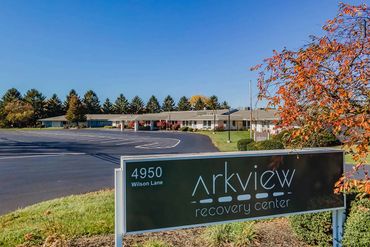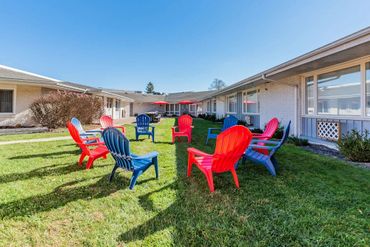
Drug & Alcohol Rehab Centers in Pennsylvania
When it comes to finding addiction treatment in Pennsylvania, it is crucial to have a comprehensive understanding of the available treatment and payment options. Substance abuse is a pervasive issue that affects individuals and communities across the state, making it imperative to seek effective and accessible treatment. Whether it’s for yourself or a loved one, knowing all there is to know about treatment facilities, programs, and payment options can make a significant difference in the recovery journey.
Treatment Centers in Pennsylvania
Open to Travel? Check out Top-Rated Options
All Treatment Centers in Pennsylvania
Rehabs.com is owned and operated by American Addiction Centers (AAC). AAC is a leading rehabilitation provider, offering all levels of care from detox to sober living, including 9 inpatient facilities nationwide.
- Philadelphia Rehabs
- Pittsburgh Rehabs
- Erie Rehabs
- Lancaster Rehabs
- Washington Rehabs
- York Rehabs
- Wilkes Barre Rehabs
- Altoona Rehabs
- Harrisburg Rehabs
- Scranton Rehabs
Rehab Insurance Coverage in Pennsylvania
Rehab Centers in Pennsylvania
Information About Rehab in Pennsylvania
Latest Reviews
Latest Reviews of Rehabs in Pennsylvania
Ellen O'Brien Gaiser Center
I was a client here during the summer of 1983 when it was the butler “a” center. This was the best experience of my life. At that time it was a 90 day program that had to be proceeded by a 28 day program. To this day I am grateful for the experience.
Endless Mountains Extended Care LLC
Great place to go if you are serious about getting sober. Entire staff is not only involved they care about you. Highly recommend EMEC. They helped me understand what I had to do in recovery. This place saved my soul, can't thank them enough.
STR Behavioral Health - Bucks County
Awesome rehab, would never go anywhere else. Staff is awesome and cares about everyone as a individual.
About Pennsylvania
Pennsylvania, a state located in the northeastern and Mid-Atlantic regions of the United States, is known for its diverse population, rich history, and varied geography. With an estimated population of over 12.9 million people,1 Pennsylvania is the fifth most populous state in the country. Its major cities, such as Philadelphia, Pittsburgh, and Harrisburg, offer a vibrant blend of urban sophistication, cultural attractions, and historical landmarks. The state’s geography is characterized by a diverse landscape, including rolling hills, fertile valleys, and the majestic Appalachian Mountains that stretch across its eastern portion.
Pennsylvania is also renowned for its strong sense of community, with a proud and enduring cultural heritage. The state embraces a range of traditions, from its renowned Amish and Pennsylvania Dutch communities to its vibrant arts scene, sporting events, and culinary delights like Philly cheesesteaks and Pennsylvania Dutch cuisine. Whether exploring its picturesque countryside or immersing oneself in its bustling cities, Pennsylvania offers a unique blend of natural beauty, cultural richness, and warm hospitality.
Addiction in Pennsylvania
According to the Office of the Pennsylvania Attorney General, the heroin and opioid epidemic in Pennsylvania stands as the most pressing public health and public safety concern in the state.2 In 2021 alone, a devastating total of 5,168 Pennsylvanians lost their lives to drug overdoses.2 Tragically, this equates to an average of 14 lives lost each day due to overdose. Regrettably, available data suggests that this distressing death toll is likely to keep climbing.
Between 2017 and 2019, the average annual prevalence of past-year substance use disorder in Pennsylvania stood at 7.0%, equivalent to approximately 758,000 individuals.3 This figure closely aligns with the national average of 7.4%. During that same period, an estimated 84,000 residents of Pennsylvania reported experiencing an opioid use disorder.3
Addiction Treatment in Pennsylvania
In Pennsylvania, there are multiple levels of addiction treatment available to individuals seeking recovery. These levels include detoxification (detox), inpatient treatment, and outpatient treatment, each serving specific needs in the recovery process.
- Detox: Detoxification, or detox, is often the first step in addiction treatment. It involves the removal of toxic substances from the body under medical supervision. This process helps manage withdrawal symptoms and prepares individuals for further treatment.
- Inpatient Treatment: Inpatient treatment, also known as residential treatment, provides a structured and supportive environment for individuals to live at a treatment facility. It offers intensive therapy, counseling, and 24-hour medical care. Inpatient treatment allows individuals to focus solely on their recovery and develop essential skills for long-term sobriety.
- Outpatient Treatment: Outpatient treatment is a more flexible option that allows individuals to live at home while attending treatment sessions. Outpatient programs offer counseling, therapy, and support services on a part-time basis. This level of treatment provides individuals with the opportunity to apply their newly acquired skills in real-world settings.
Within these levels of treatment, various therapies and specialized programs are available. These can include individual therapy, group therapy, cognitive-behavioral therapy (CBT), dialectical behavior therapy (DBT), and holistic approaches such as art therapy or yoga. These therapies aim to address the underlying causes of addiction, develop coping strategies, and promote overall well-being.
In addition to traditional treatment options, there are also luxury rehabs and private rehabs in Pennsylvania. Luxury rehabs offer upscale accommodations, amenities, and personalized services, providing a comfortable and exclusive environment for individuals seeking treatment. Private rehabs may be funded by individuals, or private insurance, offering specialized programs and personalized care.
To find local rehab options in Pennsylvania, individuals can utilize tools such as the “find a rehab center” tool, which provides a list of nearby treatment centers. This tool helps individuals and their loved ones identify and connect with rehab centers that best fit their specific needs, preferences, and location.
How Much Does Rehab Cost?
Addiction treatment is often covered, at least partially, by insurance. Most insurance providers offer coverage for addiction treatment services, including detoxification, inpatient treatment, and outpatient treatment. This coverage can help alleviate the financial burden associated with seeking professional help. Individuals who are considering addiction treatment should contact their insurance provider to understand the specifics of their coverage. They can inquire about the types of treatment covered, the extent of coverage (such as co-pays, deductibles, and out-of-pocket expenses), and any restrictions or limitations that may apply.
For individuals who are uninsured, there are still options available. One option is to explore state-funded treatment centers. State-funded treatment centers are facilities that receive government funding to provide addiction treatment services to individuals who are unable to afford private treatment. These centers offer a range of treatment options, including detox, residential programs, and outpatient services. While availability may vary, state-funded treatment centers aim to ensure that individuals have access to necessary addiction treatment regardless of their financial situation.
In-Network Insurance Options
Length of Stay in Rehab
When it comes to addiction treatment, individuals have various options regarding the length of their stay in a treatment program. The most common durations are 30 days, 60 days, and 90 days, each offering different levels of intensity and support.
In addition to these durations, there is also the option of long-term rehab, which typically lasts between 6 months to 2 years, depending on individual treatment needs and the specific facility or program enrolled in. Long-term rehab provides a more extended period of support, allowing individuals to delve deeper into the recovery process, address complex issues, and make sustainable lifestyle changes.
Recovery Starts Today
Finding the drug and alcohol rehab in Pennsylvania that is right for you is of utmost importance, as it maximizes your chances of achieving lifelong recovery. Each individual’s journey to recovery is unique, and it is crucial to seek out a treatment program that aligns with your specific needs, preferences, and goals. By selecting a rehab center that offers comprehensive and personalized care, evidence-based therapies, and ongoing support, you can embark on a path towards sustainable sobriety.
Sources:
- United States Census Bureau. QuickFacts-Pennsylvania. July 1, 2022.
- Pennsylvania Office of Attorney General. Opioid Battle.
- Substance Abuse and Mental Health Services Administration. Behavioral Health Barometer: Pennsylvania, Volume 6.





































